HOW TO FIND AN ETHICAL BREEDER
WHAT DEFINES A PUPPY MILL?
What is a puppy mill? You’ve seen countless references to puppy mills, I’m sure, in the ASPCA’s overly long TV commercial, in print, and on Facebook. But, what’s the difference between a puppy mill and a legitimate breeder? And, if you’ve decided a purebred puppy is what you want and can’t find one to adopt, how can you know your breeder isn’t a mill?
Unlike many champions in the animal rescue area, I am not 100% anti-breeder. Yes, I would prefer that everyone adopt and save a life, but I have worked with a few good breeders. Having been employed many years ago by a veterinarian who was a reproductive specialist, I know that there are excellent breeders out there. They care for their dogs as household pets and are careful with their health and temperament. They spend whatever money is necessary to ensure that they turn over a healthy, genetically sound pup to their customers.
That having been said, there are thousands of unethical dog breeders out there. Here are eight ways to distinguish a reputable breeder from a puppy mill.
-
ASK IF THE PARENTS ARE ON SITE
If the answer is yes, then ask to meet them. At the very least, Mom should be on site and it should be easy to get an introduction. If Mom looks healthy and well-fed and groomed, that’s a good sign. If she’s matted, or skinny, or otherwise in rough shape, that’s a huge warning sign. Beware of breeders who won’t let you into the dog area to meet Mom and want to bring her to you – what are they hiding? And if you’re told Mom isn’t on site, find another breeder.
-
CAN YOU SEE PUPPIES WITH THEIR MOTHER?
Ask to see the whelping area. Although good breeders won’t let you too close to mothers who may be protecting their puppies, they should have no trouble with a quick visit. Are things relatively clean (barring last-minute accidents, and normal puppy mess)? Are the kennels large enough for everyone to move around? Is the place well-lighted? Do the whelping pens have comfortable bedding? Is water within easy reach? If the answer is no to any of these questions, consider it a warning sign.
-
IS THERE PAPERWORK CLEARLY SHOWING THE AGE OF THE PUPPIES?
No puppy should ever be away from its mother before the age of eight weeks. (Some veterinarians still say six, but you’re asking for problems in the future if you remove them at that age.) In those eight weeks pups are not only getting vital immunity from their mother’s milk, they are also learning socialization skills. Removing a puppy from its mother while too young sets her up for difficulty dealing with other dogs and humans in the future. The most important bond is between a pup and his mother. You can’t expect your puppy to form a secure bond with you if that primary bond hasn’t had a chance to develop properly.
-
HOW MANY DIFFERENT BREEDS DOES THIS BREEDER OFFER?
This one is simple – if it’s more than one, walk away. Mills rely on volume, not quality. A breeder who is producing pups from more than one breed is maximizing profits at the expense of a thorough knowledge of the pets he is selling.
-
BEWARE OF DOGS BEING SOLD BY THE AMISH
This is, of course, a wild generalization. However, Lancaster County in Pennsylvania has the most identified puppy mills in the country. And, of the five states that the ASPCA considers to have the most puppy mills, three have large Amish populations.
One of the reasons – the Amish consider dogs to be livestock, not pets, and the emphasis is put on production. (The sect is not known for treating their horses particularly well, either.) This leads to horrific conditions. Some of these are moms with congenital health issues untreated; puppies infected with Parvo before being sold to unwitting customers; wire cages where no movement is allowed. Most of these mill survivors, if rescued, are terrified of humans. They’ve never been shown affection, never been treated by a veterinarian, and never felt grass underneath their feet. They’re bred as often as nature allows, with the result that they are nearly always pregnant. And, when they can’t be bred any longer, they’re euthanized (usually not by a veterinarian) to make room for a “productive animal”.
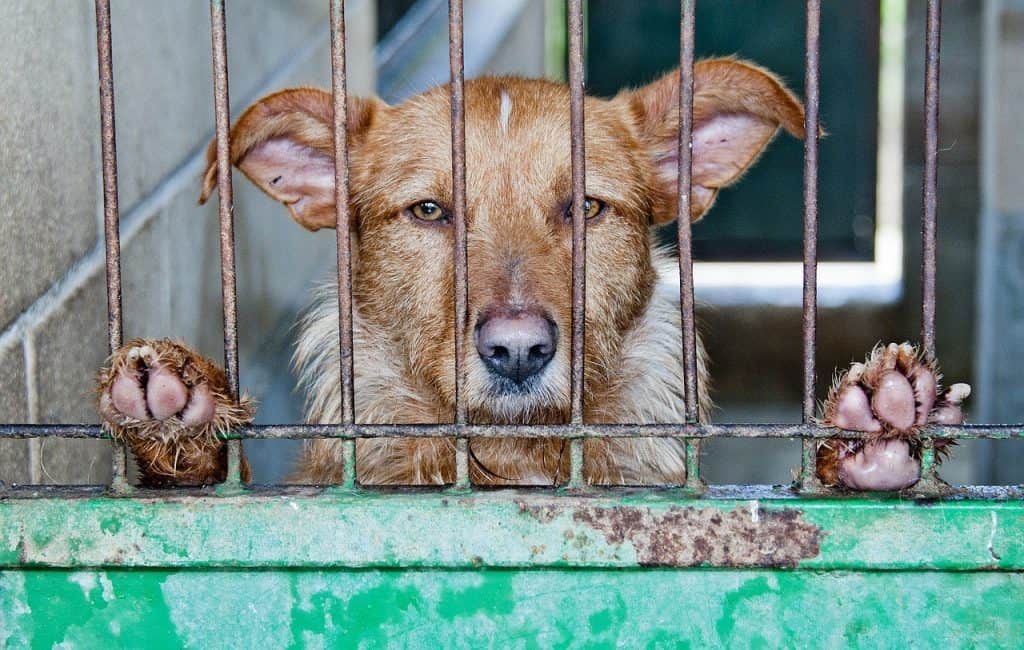
Believe it or not, there are actual dog auctions, where “breeding stock” is sold off to the highest bidder. Occasionally a rescue organization will attend, with the aim of rescuing some dogs from a life as “brood mares” and purchase a number of these dogs. This is problematic, however. The money that these organizations pay go straight to the mill owners (minus a commission to the auctioneer), which encourages them to continue. The ethics of this practice are often debated with no consensus in sight.
-
HOW DO THE DOGS REACT TO THE BREEDER?
If you have the chance to see other dogs that the breeder has, see how they react to her. Are they bounding over for a pet and some attention? Or are they trying to make themselves small to avoid her attention? Even if they are hesitant around you, a stranger, are they at least interested and maybe tentatively wagging a tail? You can learn a lot about how they are treated when there are no customers are present by how they react to the breeder.
-
HEALTH RECORDS
Make sure there are complete health records for any puppy you’re considering buying. These should show deworming and at least one set of vaccinations against the mostly deadly canine diseases (Parvo, distemper, adenovirus) by the time he is ready to go home. If you’re not seeing these, walk away. It’s unbelievably heart-breaking to bring home a new member of the family only to watch them die days or weeks later of a preventable disease. (Rabies shots are generally not given until 12 weeks of age, or until a puppy reaches a certain weight, so if your puppy is younger than that, you won’t see records for this vaccine.)
-
A CONTRACT
Do you have to sign a contract when purchasing a puppy? The answer should be yes. Legitimate breeders want to make sure their puppies go to great homes. Most will ask that you promise not to tie these dogs outside and will provide regular veterinary care. Some will have additional conditions. A breeder who does not require any conditions from a purchaser doesn’t care what happens to the puppy after it is sold. Avoid them.
ISN’T BUYING FROM A PUPPY MILL RESCUING A PUPPY?
There is a lot of debate about this one. On the one hand, if you buy a puppy mill puppy you are certainly providing it with a better life than it has at the mill. On the other, you are supporting that breeder which only perpetuates the problem. If he’s making money, no matter what your reasons are for buying, he’ll continue raising that “cash crop”.
If you do buy from a mill, be aware that these dogs are not bred with any knowledge of genetics or temperament. There are thousands of stories of people spending a lot of money to buy a purebred puppy only to lose them a week or a month later due to not being vaccinated. Even if they avoid disease, they may have a genetic health condition which won’t appear for months or years. Even if they do survive, starting out their lives in such horrible conditions often causes behavioral issues that may take a professional trainer a long time to resolve.
Although my heart would break when confronted with a puppy mill puppy, I would have to walk away rather than financially support that breeder.
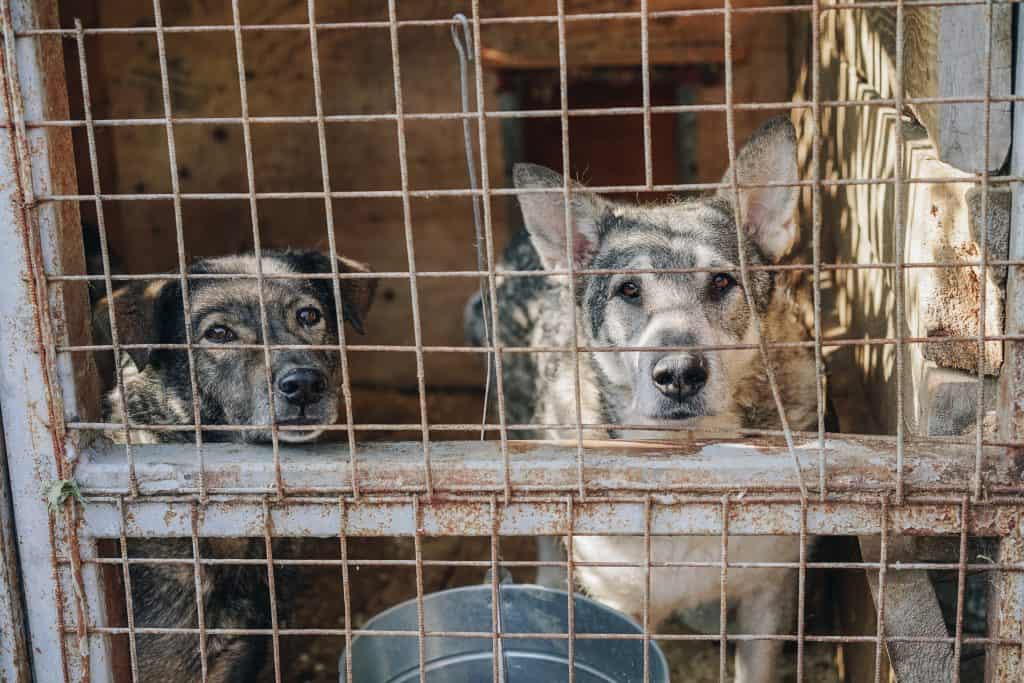
WHAT’S THE DIFFERENCE BETWEEN A PUPPY MILL AND A BACKYARD BREEDER?
Where a puppy mill owner actively mistreats the animals, the backyard breeder generally uses his own pets to “make a little extra money”. Be aware, though, that these breeders usually don’t understand genetics. They rarely provide complete pre-natal veterinary care. And, unfortunately, there are certain veterinarians who will encourage removing puppies from their mother at too young an age so that these breeders will return to them for the next litter. Becoming an ethical breeder takes time, plenty of money, and a thorough education. If a breeder is not willing to do what it takes to offer healthy puppies, they have no business breeding.
These backyard breeders contribute greatly to the unwanted animals coming into the shelters. They sell puppies with behavioral problems or health issues to anyone with a checkbook. The result? These pups are often surrendered or “dumped” when their care becomes more than the new owner is willing to deal with. The same can be said of puppy mills. There, not only do the puppies get abandoned, the breeding dogs, once their breeding days are over, are often dumped in the country, end up dead, or find themselves in shelters.
GOOD BREEDERS
Now that I’ve thoroughly depressed everyone, there is good news. There are good breeders out there. Because they are good breeders, however, you can expect puppies to be very expensive. Don’t think they’re making tons of money, either. Breeding healthy, genetically sound puppies takes a lot of commitment, and, most of all, money. These breeders take their dogs for checkups often, ensure that all vaccinations are up to date, and, sometimes, have a veterinarian in attendance during the birth. If things go wrong during labor, a Caesarean section is performed. All in all, producing a healthy and happy litter of puppies is an expensive endeavor, and you should expect to pay a high price.
The easiest way to pick out a good breeder is to watch her expression when she speaks about her dogs. Good breeders exist solely for the love of the breed, be it poodles, French bulldogs, or Great Pyrenees. And they love their dogs in particular. When you see that excitement and love on a breeders face when referring to their dogs, you’ve gone to the right place.
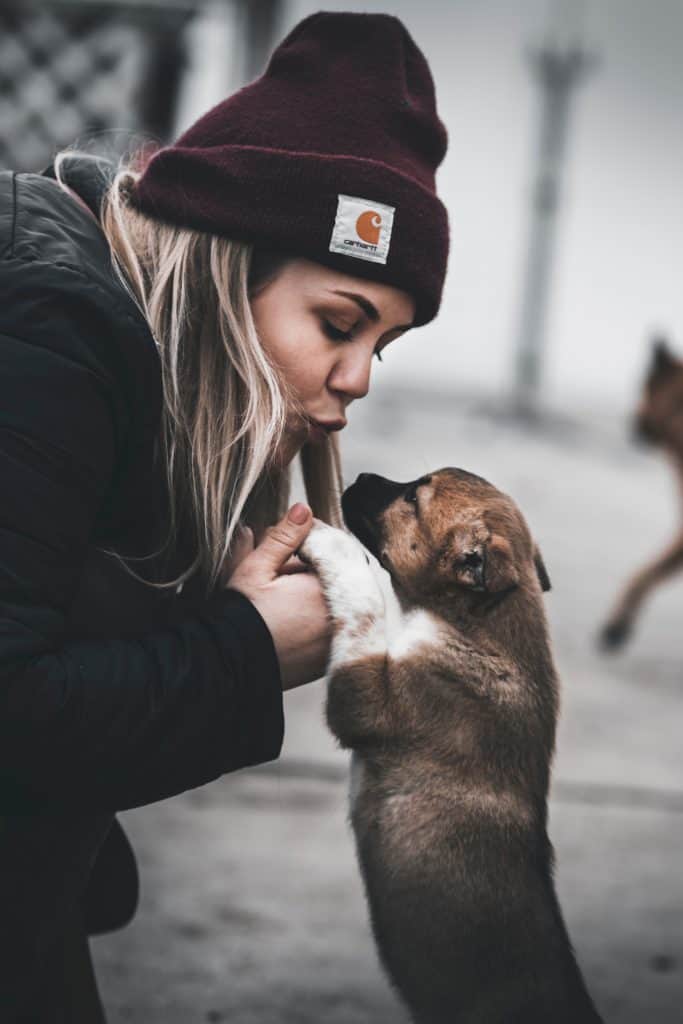
SO….SHOULD I BUY OR ADOPT?
My answer will always be 100 percent – adopt. That having been said, if you’re in love with a particular breed, and nothing else will do, do your research and choose a breeder carefully. Just as with adopting a dog, buy with the understanding that you are providing a forever home for that animal, no matter what. Dogs are not disposable, they are not livestock. They are, and deserve to be, members of our families. You wouldn’t abandon a relative when they got sick or misbehaved – don’t think of abandoning your pet. If you’re ready to make that lifelong commitment, and can afford the expense, go ahead and choose a puppy from a really good breeder.
Check out breed-specific rescues if you’re interested in a specific breed. These organizations will often adopt long distance to the right home. If you live in California, and the puppy you are interested in is in Michigan, there are often ways to adopt. And adopting a dog – whether pure-bred or a mutt – really does save lives. To find many breed-specific rescues, please check out the shelter/rescue directory on the home page of this site.
Here’s to finding your perfect dog – I hope it’s a rescue, but, if not, I hope you find an excellent breeder.
Photo of two dogs in cage by Photo by Sasha Sashina on Unsplash
Photo of dog standing on hind legs in cage Image by Amaya Eguizábal from Pixabay
Rottweiler puppy photo Image by Jan Steiner from Pixabay
Two puppies Image by shelma25 from Pixabay
Woman with puppy Photo by Daniel Lincoln on Unsplash
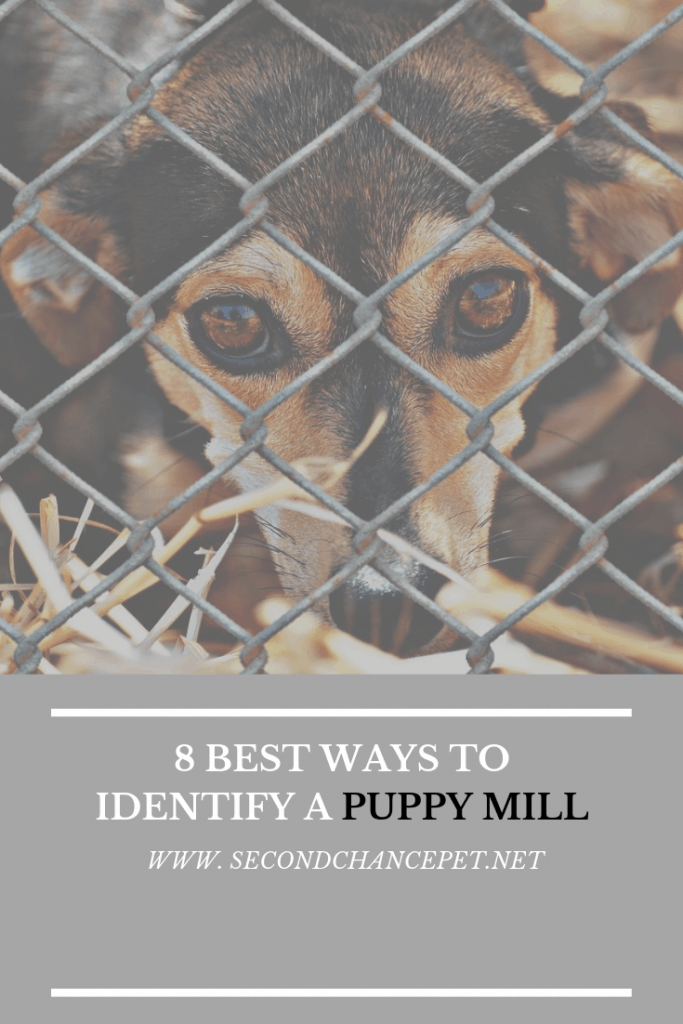
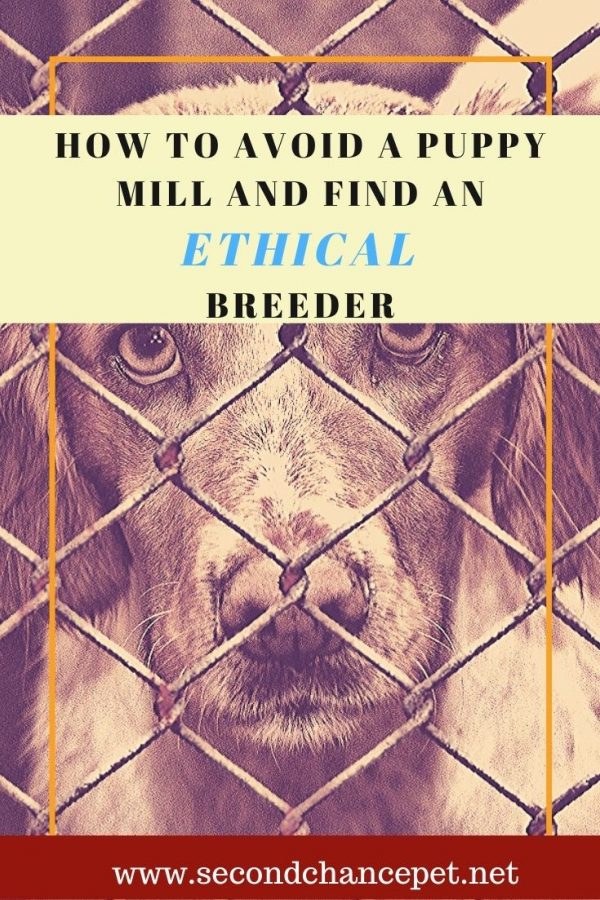
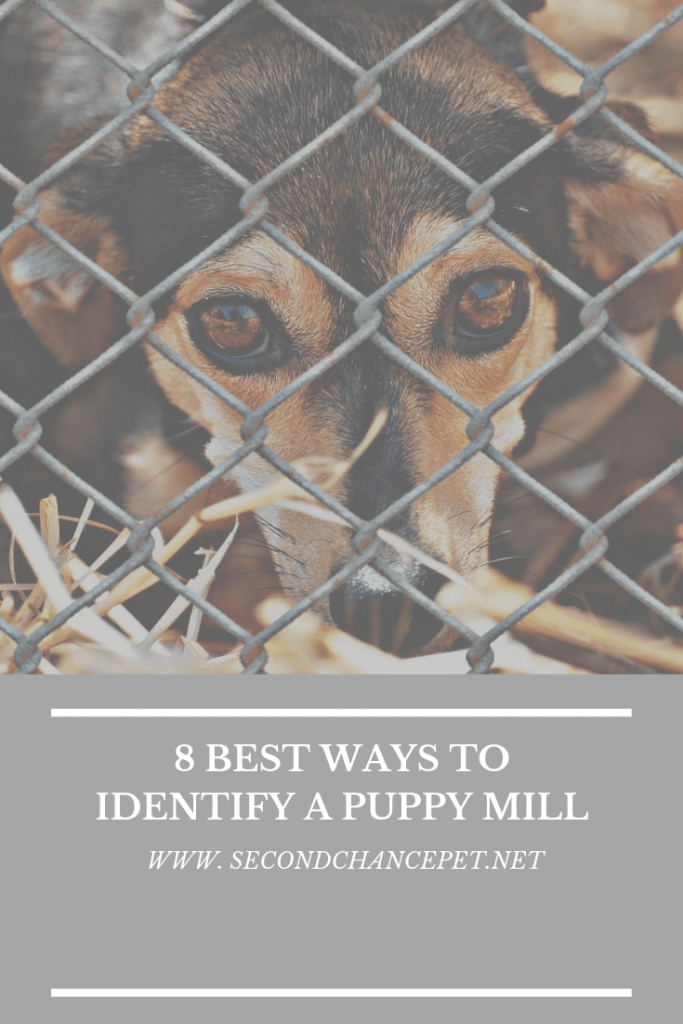

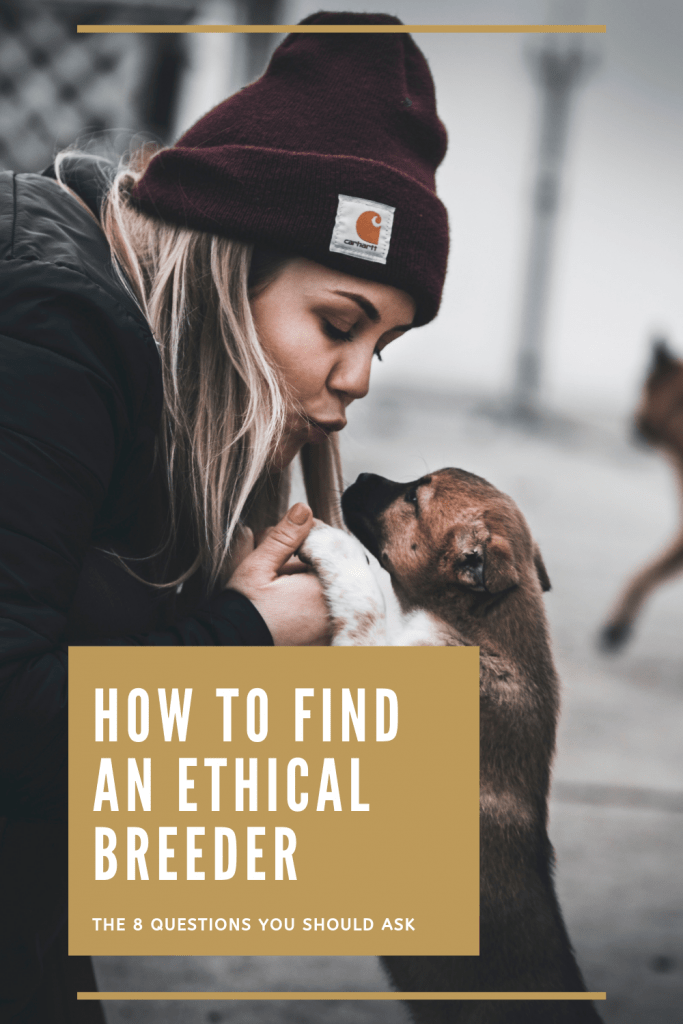




This Post Has 2 Comments
This is so important to know! Thank you for providing this information.
Thank you, Kalie Lyn. I hope everyone reading adopts, but, if not, I want everyone to know what to look for in a breeder.
Comments are closed.